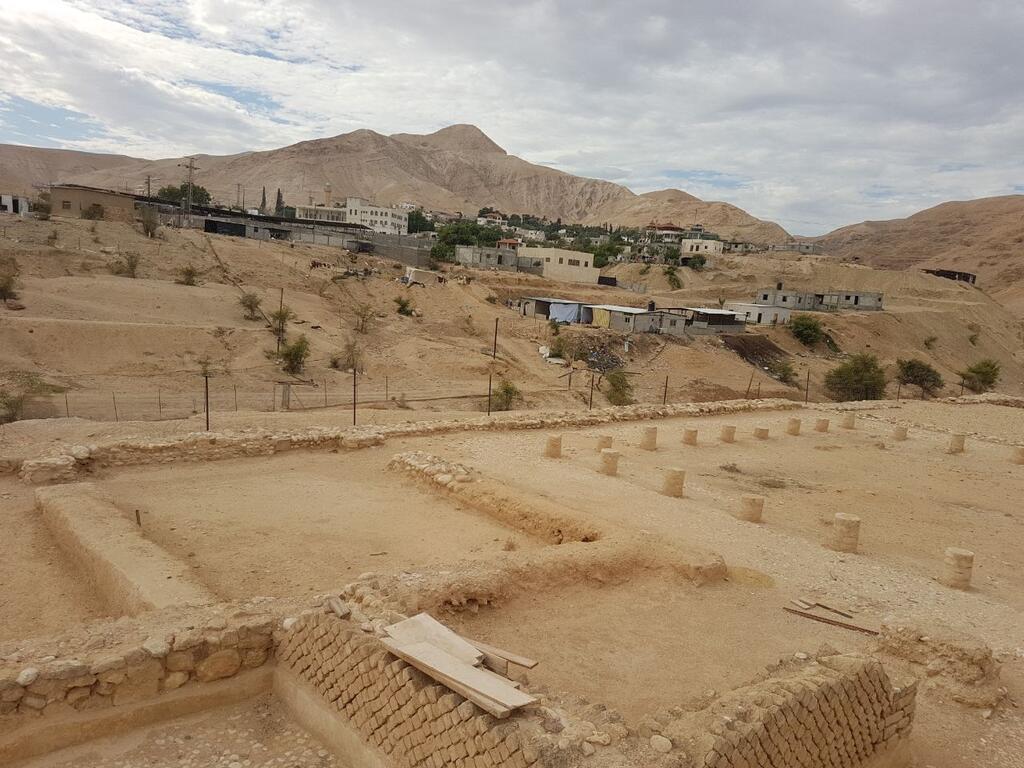Getting your Trinity Audio player ready...
The IDF soldiers may not find a trove of oil that will miraculously last for eight days in the Gaza war, but the historian Prof. Noah Hacham is convinced that quite a bit can be learned from the historic victory of the Maccabees for Israel's current campaign against Hamas.
Read more:
Prof. Hacham, 60, from the Department of Jewish History and Contemporary Jewry at the Hebrew University, wrote his doctoral thesis on the historical significance of the third Book of Maccabim. Since then, he continues to research and write about the Hellenistic Jewish Diaspora, the literature of the Sages, and the Hasmonean state, which existed for about 80 years.
4 View gallery


Chief of Staff Herzi Halevi lighting candles with Nahal Brigade soldiers
(Photo: IDF Spokesperson's Unit)
"That period is not only of personal interest to me," he says, "it is a significant and fundamental period in Jewish history. In fact, most of what we know in the Jewish world was created during this period. At that time, the foundations of the Judaism we know were laid, and it was the last time there was an independent Jewish state until the 20th century."
Are you worried that the "80-year curse" will also harm the State of Israel?
"There is a historical phenomenon in many countries, including the United States, which fell into a severe crisis about eight decades after their establishment. Every generation, in fact, is condemned to make mistakes, some of them significant. But my anxiety is not because I am a historian, but personally I am anxious that we will be at odds with each other. If we are unable to live with each other, we will destroy the Jewish state with our own hands."
Prof. Hacham emphasizes that history does not repeat itself, and it is wrong to compare the present to historical events. However, it is possible to learn general principles from the events of the past, which are valid for the present. Therefore, it is possible to reflect on the Maccabean rebellion and the Hasmonean state in the context of the war we are currently experiencing, and draw some significant and thought-provoking conclusions.
Conclusion 1: Establishment of a state and redemption - a gradual process
"There is a fundamental error in the accepted concept of Hanukkah. Many are convinced that there were decrees, the Maccabees defeated the Greeks, cleansed the temple and since then everyone lived happily ever after," notes Prof. Hacham. "However, the Maccabean Wars were actually a long series of battles, some of which included heavy losses, and a struggle that lasted for a long time."
"The most important parallel between the process of establishing the Hasmonean state and today is that it is a gradual process. From the decrees to the establishment of the Hasmonean state, more than 20 years passed, Even after the purification of the temple, there were many downfalls until the Hasmonean state was established. Even after its establishment, there were ups and downs. What I see in Hanukkah, in the historical course of the Hasmonean state that suits us, is the need to be patient. Victory does not come suddenly just like that."
Conclusion 2: We must be strong
"Even after the fall of Judah the Maccabee in battle, the Hasmoneans going underground and fleeing to the desert, the representatives of the Seleucid government and their Jewish collaborators did not really manage to rule, nor subjugate Jonathan, the brother of Judah the Maccabee, and his men," notes Prof. Hacham.
"The Seleucids came to know that Jonathan was the strongest force in the land of Judah, so they allowed him to return from the desert, gave him authority, and finally even appointed him as high priest. They understood that he was stronger, and people went after the strong."
So the world will only support us if we are strong?
"Yes. The lesson for our time is that if we are strong enough, the superpowers will respect us and realize that they have something to gain from supporting us. But Jonathan became high priest for another reason - he was courted because there was an international crisis. At that time, both the Ptolemaic kingdom and the Romans opposed the rule of King Demetrius The First of the Seleucid kingdom."
"Part of his sophistication was knowing how to take advantage of international circumstances to accumulate power. Not only military power, but also his international status. To take advantage of the international situation to gain recognition. We also need to know how to take advantage of international crises to strengthen our position," he said.
Conclusion 3: We need a Jewish lobby
In the years 76-103 BC, the high priest and the one who ruled the Hasmonean kingdom was Alexander Jannaeus. Since the beginning of his time, there was a power struggle between two Ptolemaic princes in Egypt and the Hasmonean kingdom of Judah was conquered by Queen Cleopatra. As a result, the Land of Israel was under Egypt's rule, despite Jews who served as senior military ministers in Queen Cleopatra's army.
"They advised her to leave the Jewish kingdom independent, and this is a good example of how a strong Jewish lobby would help the Jewish state. This proves that in order to maintain a state you need an army, you need to be strong and you also need to worry about statesmanship," said Prof. Hacham.
 Prof. Noah Hacham Photo: Yinnon Hacham
Prof. Noah Hacham Photo: Yinnon HachamConclusion 4: Beware of the danger of civil war
"Many think that the Hasmonean rebellion broke out as a response to the decrees of Antiochus IV Epiphanes and the desecration of the Temple in 167 BC, but the important point is that the decrees were preceded by a civil war between the Jews who supported Greeks and those who opposed them," says Prof. Hacham, "this caused riots in Jerusalem, which was perceived by the authorities as a rebellion, and this is probably what led to the decrees. In the internal struggle at the time, the foreign nations supported the pro-Greek Jewish people, and of course the situation today is completely different."
"Nevertheless, it is interesting that both then and today there was a fierce and tough internal struggle between the Jews, at the same time as an external struggle. In fact, since Joseph and his brothers, our history is accompanied by internal struggles."





